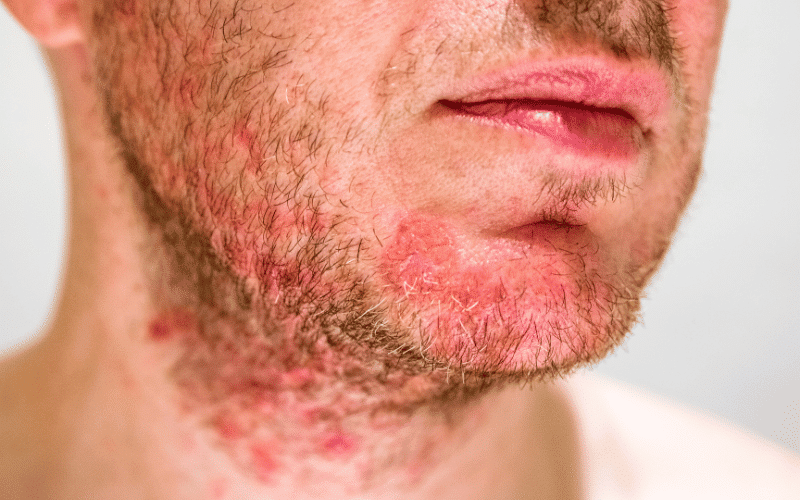Frequently Asked Questions About Seborrheic Dermatitis

1. What causes seborrheic dermatitis?
The exact cause of seborrheic dermatitis is not fully understood, but it is believed to involve a combination of factors, including an overgrowth of the yeast Malassezia on the skin, an overactive immune response, and a genetic predisposition. Other factors, such as stress, hormonal changes, and cold weather, can also trigger or exacerbate the condition.
2. Can seborrheic dermatitis be cured?
Seborrheic dermatitis is a chronic condition, and there is no definitive cure. However, the symptoms can be managed effectively with proper treatment and self-care measures. This may include the use of medicated shampoos, topical treatments, and maintaining good skin and scalp hygiene.
3. Is seborrheic dermatitis contagious?
No, seborrheic dermatitis is not contagious. It is a chronic inflammatory skin condition, and you cannot catch it from or transmit it to another person.
4. How can I prevent seborrheic dermatitis flare-ups?
While there is no guaranteed way to prevent seborrheic dermatitis flare-ups, you can minimize the risk by maintaining good skin and scalp hygiene, using medicated shampoos as needed, and managing stress levels. It’s also essential to follow the treatment plan prescribed by your healthcare professional to keep the symptoms under control.
5. Can diet play a role in managing seborrheic dermatitis?
While there is no specific diet proven to prevent or treat seborrheic dermatitis, some individuals may find that certain foods trigger their symptoms. Eating a well-balanced, nutritious diet and staying well-hydrated can support overall skin health and may help minimize the severity of flare-ups. Additionally, reducing the intake of foods high in sugar and processed ingredients may help some individuals better manage their condition. Always consult your healthcare professional before making significant dietary changes.
Conclusion: Managing Seborrheic Dermatitis Effectively
Seborrheic dermatitis is a chronic skin condition characterized by a range of symptoms, including red, scaly patches, itching, and discomfort. By understanding these top 10 symptoms and their potential causes, individuals affected by this condition can better recognize the signs and seek appropriate medical care when necessary.
Managing seborrheic dermatitis effectively requires a combination of medical treatments and self-care measures, such as using medicated shampoos, maintaining proper skin and scalp hygiene, and practicing gentle hair care techniques. By taking these steps, individuals with seborrheic dermatitis can minimize the impact of the condition on their daily lives and improve their overall quality of life.
Remember, if you are experiencing any of the symptoms discussed in this article or suspect you may have seborrheic dermatitis, it’s important to consult a healthcare professional for an accurate diagnosis and personalized treatment plan.